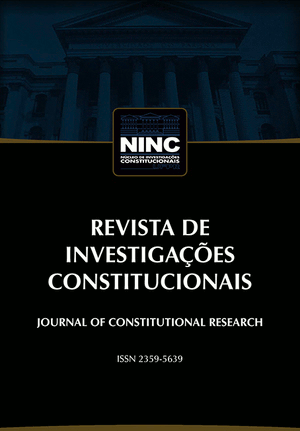Abstract
The (un)constitutionality of vaquejada's practice recently has become the center of Judiciary, Executive and Legislative analysis in Brazil. In a matter of months, the practice was considerate an unconstitutionality by Brazilian Federal Supreme Court, it has been recognized by law as a Brazilian cultural heritage and was object to an Amendment Proposed to the Constitution, of which accrue nº. 96 Constitutional Amendment that excluded from the cruel practices those resulting from cultural practices that regulate and ensure animal's welfare. It's intended, in this context, to analyze whether the posture adopted by Powers of State sustained itself in an institutional dialogue or ignored the harmonic relation inherent to Principle of Separation Powers, being used for such thing the deductive method. In a first moment is analyzed the Direct Action of Unconstitutionality nº. 4.983/CE and, after, the PAC referred, as well as Law nº. 13.364/16 and Constitutional Amendment nº. 96, being, lastly, addressed the question about the institutional dialogue. It can be extracted of this set of decisions taken by the three Powers the attempt to realize a dialogue by Legislative Power, at least as regards to the arguments utilization that try to counteract those that had been taken to a declaration of unconstitutionality by the higher Brazilian Tribunal.
Keywords:
Direct Action of Unconstitutionality nº. 4.983/CE; Proposed Amendment to the Constitution nº. 304/2017; Constitutional Amendment nº. 96/2017; vaquejada; dialogue among Powers
